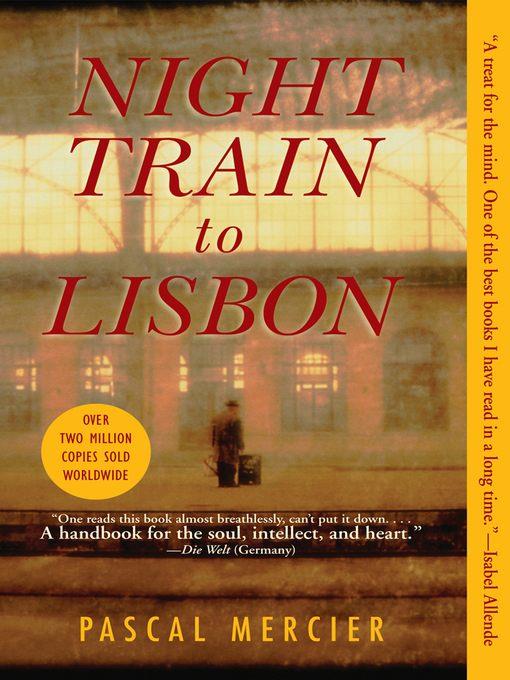
Night Train to Lisbon
کتاب های مرتبط
- اطلاعات
- نقد و بررسی
- دیدگاه کاربران
نقد و بررسی

November 5, 2007
In Swiss novelist Mercier's U.S. debut, Raimund Gregorius is a gifted but dull 57-year-old high school classical languages teacher in Switzerland. After a chance meeting with a Portuguese woman in the rain, he discovers the work of a Portuguese poet and doctor, Amadeu de Prado, persecuted under Salazar's regime. Transfixed by the work, Gregorius boards a train for Lisbon, bent on discovering Prado's fate and on uncovering more of his work. He returns to the sites of Prado's life and interviews the major players—Prado's sisters, lovers, fellow resistors and estranged best friend—and begins to lose himself. The artful unspooling of Prado's fraught life is richly detailed: full of surprises and paradoxes, it incorporates a vivid rendering of the Portuguese resistance to Salazar. The novel, Mercier's third in Europe, was a blockbuster there. Long philosophical interludes in Prado's voice may not play as well in the U.S., but the book comes through on the enigmas of trying to live and write under fascism.

January 15, 2008
Raimund Gregorius, a Swiss professor of classical languages, is crossing a rainy bridge in Bern when a mysterious woman writes a phone number on his forehead and utters a single word in Portuguese. Later that day, he wanders into a bookstore and finds himself drawn to a Portuguese book titled "A Goldsmith of Words", self-published in Lisbon 30 years earlier. These unexplained and seemingly unrelated events conspire to tear myopic bookworm Gregorius out of his solitary and unvarying existence and send him to Lisbon in search of both the woman and Amadeu de Prado, the book's (fictional) author. This third novel by the pseudonymous Mercier caused a sensation in Europe and spent 140 weeks on the German best-sellers lists, feats unlikely to be duplicated in the United States because of the book's slow pacing. Patient readers will be rewarded, however, by the involving, unpredictable, and well-constructed plot and Mercier's virtuosic orchestration of a large and memorable cast of characters. As the stories of Gregorius and de Prado draw together, this becomes a moving meditation on the defining moments in our lives, the "silent explosions that change everything." Recommended for all fiction collections.Forest Turner, Suffolk Cty. House of Correction Lib., Boston
Copyright 2008 Library Journal, LLC Used with permission.

























دیدگاه کاربران